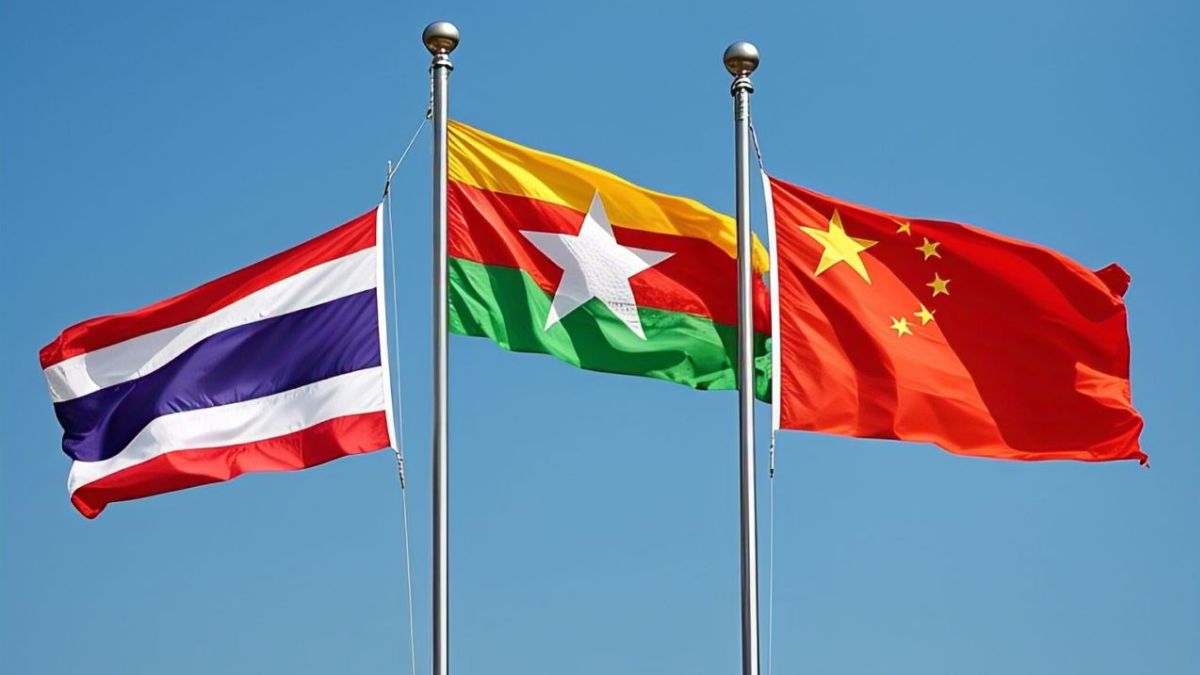Thailand has suspended electricity supply to multiple locations along its border with Myanmar in an effort to crack down on scam centres run by criminal syndicates, which have been blamed for deterring Chinese tourists, officials said Wednesday (February 5).
Thai authorities cut cross-border power supplies to five locations, including two in Mae Sai, two in Mae Sot, and one at Three Pagodas Pass, Interior Minister Anutin Charnvirakul said. The move follows a decision by Thailand’s National Security Council as the government seeks to curb the operations of illicit compounds that have ensnared large numbers of trafficked workers in Southeast Asia.
“The electricity supply is not being stopped because the companies violated the contract, but because the electricity is being misused for scams, drugs and call centres,” Anutin said. He added that electricity sales to Myanmar at these locations generated approximately 50 million baht ($1.5 million) per month for Thailand.
Thailand’s action comes amid growing concerns over the impact of transnational crime networks operating in Myanmar’s border areas, including Tachileik, Myawaddy, and Payathonzu. These scam compounds, largely controlled by criminal groups, have been accused of forcing trafficked individuals–many of them Chinese nationals– to conduct fraudulent online schemes.
The issue has drawn sharp concern from Beijing, particularly after Chinese actor Wang Xing was abducted in Thailand last month and later rescued from a compound in Myanmar. The incident fueled fears among Chinese travelers, leading to a noticeable decline in tourist arrivals during the Lunar New Year holiday.
Prime Minister Paetongtarn Shinawatra, who is currently in Beijing for talks with President Xi Jinping, has acknowledged the urgency of addressing the scam centres. “What happened has had a huge impact on many Thai people and the image of the country,” she said.
Impact Shorts
More ShortsPressure from China
The Thai government has been under pressure to act, especially as it seeks to restore confidence in its tourism industry, which is still recovering from the impact of the COVID-19 pandemic. China remains a critical market for Thailand’s tourism sector, and officials have sought to reassure visitors that the country remains a safe destination.
Myanmar’s military government has acknowledged the existence of these scam centres, though it has claimed that essential services such as electricity and internet are not provided by its authorities but by “foreign organisations.” Since October 2023, Myanmar says it has repatriated more than 55,000 foreigners, mostly Chinese nationals, who were forced to work in these compounds.
Deputy Prime Minister Phumtham Wechayachai said the scam centres are not just a criminal issue but a “national security issue” that Thailand can no longer ignore. “We must take action to cut off the electricity immediately,” he said earlier this week.
With the power cuts now in effect, Thai officials say they hope to disrupt the operations of the scam centres, though criminal networks in Myanmar’s border regions have proven resilient to past crackdowns.
With inputs from agencies
)